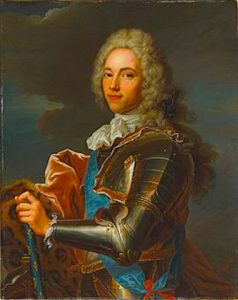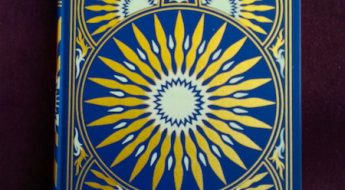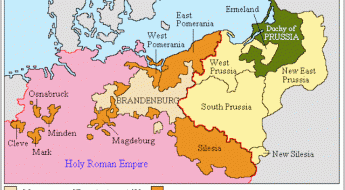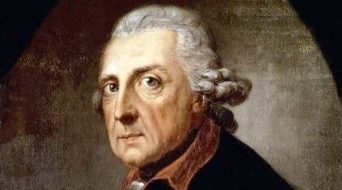In this instalment of our tale, translated by me from the memoirs of the Marquis de Valfons, Frederick, traveling as ‘Count Dufour,’ realizes that his cover has been blown:
‘Count Dufour was not yet in bed when I called at the Maréchal (Marshal) de Broglie’s to tell him what I had seen and what the innkeeper, in the know despite the silence of the count’s suite, had told me. The Maréchal sent M de Laigle, his wife’s nephew, to offer the noble foreigner lodgings in his own house and everything that he could desire. Count Dufour, afraid of being recognized, was very annoyed by this message and thanked M de Laigle, then Colonel d’Enghien, who let him go to bed.

François-Marie de Broglie (1671-1745), Marshal of France, created Duke in 1742. Credit: Wikipedia.
In the morning, Coincy conducted him to the square where the guards were on parade, and he was very surprised to see the people gathering around him. A soldier who was a Prussian deserter serving with our troops, breaking ranks, came to throw himself at his feet, crying, “Sire, I beg you to pardon me!” “You are mistaken,” said the very embarrassed Count Dufour, “I am not the King of Prussia, but if I were, I would give you what you ask.”
The unfortunate soldier gave way to transports of joy, and the crowd grew. Coincy took the count to see the other battalions, and then the arsenal, where he evinced surprise to see a hundred bronze cannons cooling at the door of the foundry. From there he went round the ramparts and the citadel, of which the fortifications were shown to him by the younger Du Portail, the engineer. Inside the citadel, he was shown the statues of the benevolent kings. He said, “Yes, there are many kings, but it’s quite difficult actually to be one and to fulfill all the duties.” He returned to the inn, still followed by the crowd.
Maréchal de Broglie and M de Brou, the intendant* of Alsace, later Keeper of the Seals**, held a council in which they at first wanted to assign him (Frederick) a company of grenadiers under the pretext of an honour guard, but in fact to secure his person while awaiting the return of a courier who was to be sent***; fortunately, they didn’t dwell on that idea. The Maréchal sent M de Laigle to ask the King of Prussia, now that his status was no longer in doubt, what time he could offer his homage if it didn’t suit him better to come to Government House. Count Dufour, sticking to his incognito, but worn out by all these messages and above all by being discovered, replied that he was going to have a bite, and that he would drop by the Maréchal’s at three o’clock.’
* The intendant was the administrator of the province.
**The Keeper of the Seals (Fr. Garde des Sceaux) was one of the great offices of state before the Revolution.
***Presumably to Versailles to alert the Foreign Minister and Louis XV. It seems the courier was not sent.
In the final instalment, Frederick and Maréchal de Broglie have an unsatisfactory meeting. Please check back in a day or two!


















Leave a Comment